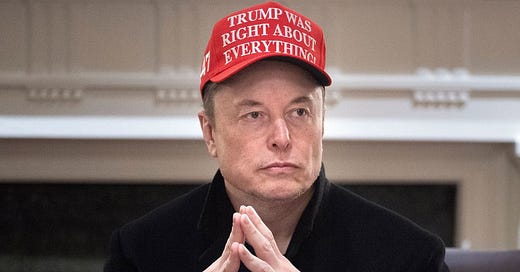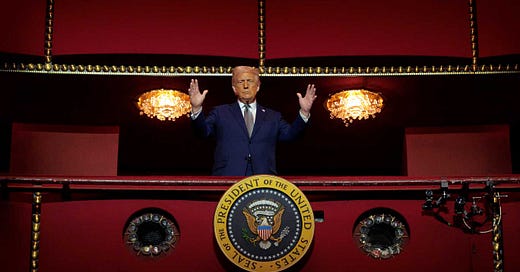
Congressional Democrats plan to introduce legislation Thursday to force DOGE chief Elon Musk to disclose his finances publicly, according to a copy of the bill obtained by The Free Press.
Since Musk is serving President Donald Trump as an unpaid Special Government Employee (SGE), he is under no current legal obligation to release documents that would detail his holdings and other financial details. This arrangement allows Musk, the world’s richest man, to skirt public scrutiny that other officials typically face over potential conflicts of interest involving things like domestic and foreign investments, and consulting gigs.
A group of Democrats led by New Mexico Senator Ben Ray Luján and California congressman Dave Min seek to change that. On Thursday afternoon, the lawmakers will put forth a bill dubbed the “Special Government Employees Transparency Act of 2025.”
The proposal seeks to amend federal rules to require the public release of financial disclosures for Musk and other Special Government Employees. A White House official told The New York Times in February that Musk planned to file a financial disclosure but that it would remain private.
The bill would also require the executive branch to maintain a publicly searchable database of all SGEs, including their job titles, the agencies that employed them, as well as the dates of their appointments and anticipated terminations.
“Accountability is critical in government, that is why Special Government Employees should be held to ethical standards that prevent them from using their position for their own financial gain,” Luján told The Free Press. “This legislation would boost transparency and accountability necessary to ensure special government employees don’t abuse their power.”
Musk’s vast fortune and positions as the head of companies that receive lucrative federal contracts—particularly SpaceX—places him in a unique spot when it comes to potential conflicts. Musk is the CEO of the electric vehicle business Tesla and the rocket company SpaceX. Both companies do extensive business in China and SpaceX reaps tens of billions of dollars from the U.S. government.
Min told The Free Press, “Elon Musk and DOGE are operating without any accountability or oversight, and that is unacceptable.”
SGEs like Musk—the face of Trump’s expansive effort to cut spending—are allowed to serve in their roles for a maximum of 130 days. Ethics scrutiny of SGEs is not new. President Joe Biden took heat from conservative watchdogs over then-White House adviser Anita Dunn’s nonconsecutive stints as an SGE for more than 130 days.
Under the Democratic proposal, any SGEs who serve for over 130 days, whether consecutive or not, would be automatically converted to regular employee status in the government. That would subject the former SGEs to more rigid federal ethics requirements.
In the Senate, Luján and Min’s bill is being co-sponsored by senators Elizabeth Warren, Adam Schiff, Ron Wyden, and Mark Kelly.
It is also being backed by the Project on Government Oversight, the Campaign Legal Center, and other watchdog groups taking aim at the Trump administration for its alleged unwillingness to hew to transparency norms.
Under a Republican-controlled Congress and with a Republican president, the bill faces a near impossible uphill climb. To Dylan Hedtler-Gaudette, a lobbyist for the nonpartisan Project on Government Oversight, the SGE bill is, nonetheless, a common-sense proposal.
“The special government employee system is riddled with loopholes and too easy to exploit,” said Hedtler-Gaudette. “Both Democratic and Republican administrations over the years have used it as a way to bring favored friends and advisers into their administrations without going through regular processes and vetting and all the public scrutiny that goes along with those processes.”
“This,” he added, “makes the problem of potential corruption and conflicts of interest even worse than they already are.”













